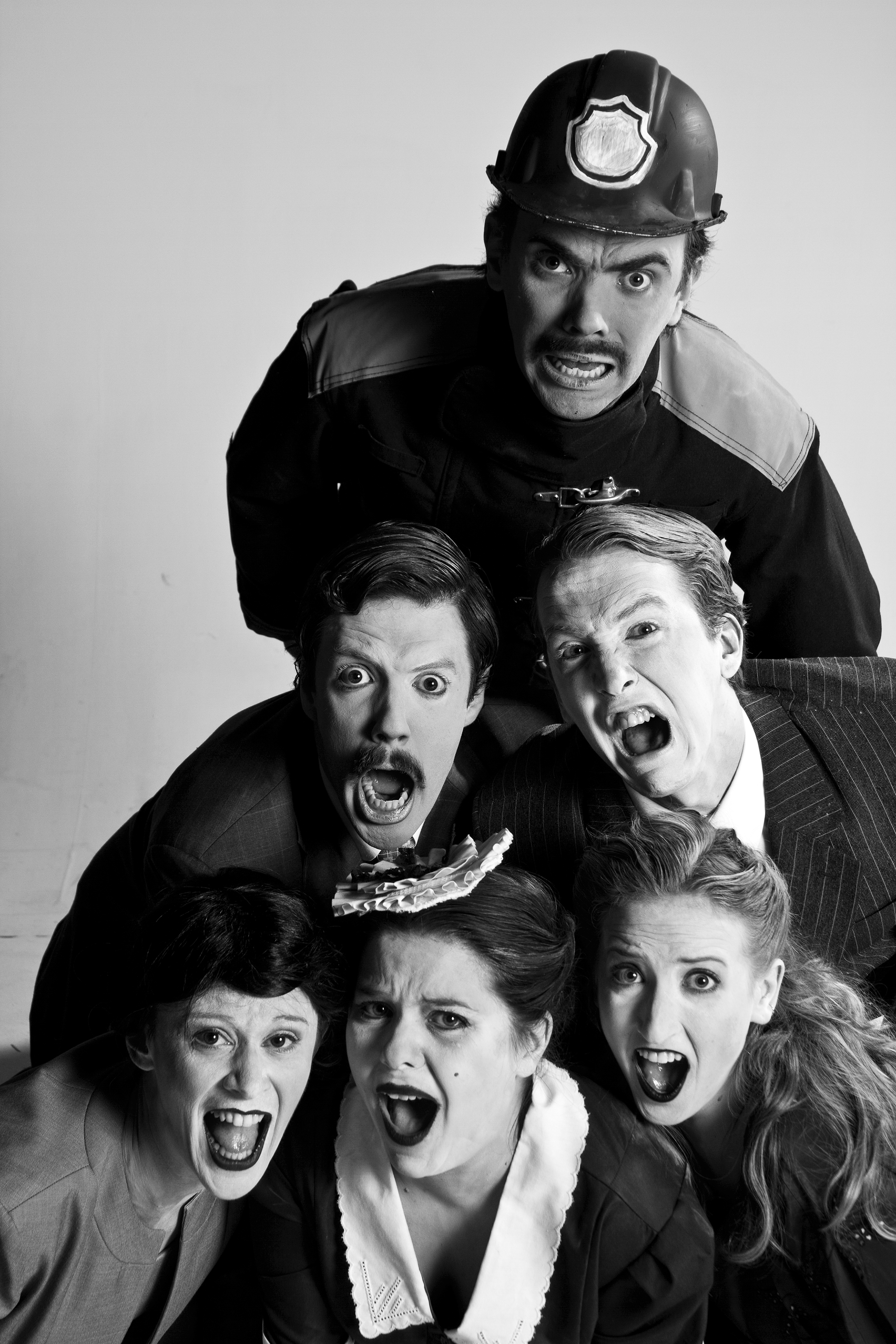
![]() BY AARON STELLA This weekend, six actors from Brat Productions performed looped interpretations of Romanian playwright Eugene Ionesco’s The Bald Soprano for 24 hours without breaks. Curtains opened 8pm last Friday and closed 8pm the following Saturday in the Annenberg Center for Performing Arts and Sciences. Coffee was served through each roaring hour, but some patrons guzzled PBRs in the interim. It was apparent that the more rowdy pockets of audience had been camping out in the theater for most the day, if not the since the night before. I stayed for three performances; I could have stayed for more. For The Bald Soprano does nothing short of mescaline bomb the clammy, info-clotted veins of people in the modern world.
BY AARON STELLA This weekend, six actors from Brat Productions performed looped interpretations of Romanian playwright Eugene Ionesco’s The Bald Soprano for 24 hours without breaks. Curtains opened 8pm last Friday and closed 8pm the following Saturday in the Annenberg Center for Performing Arts and Sciences. Coffee was served through each roaring hour, but some patrons guzzled PBRs in the interim. It was apparent that the more rowdy pockets of audience had been camping out in the theater for most the day, if not the since the night before. I stayed for three performances; I could have stayed for more. For The Bald Soprano does nothing short of mescaline bomb the clammy, info-clotted veins of people in the modern world.
Native to Romania, Ionesco learned English via the “Assimil” method, which is designed to teach foreign languages through a series of listening periods before cultivating active speech through the memorizing of whole phrases. Ionesco found the sober parry of the King’s English to be diverse in tone but strange in the back and forth volley of conversation. This disconnect between intention and application was what inspired him to write the satire L’anglais sans peine (“English without toil”), and eventually change it to The Bald Soprano after one of the cast members blundered a line. Consequently, said line (“The Bald Soprano?”) became the trigger for all semblance of sane conversation to spiral into oblivion. Upon invoking the magic words, the exchanges of dialogue abruptly shift from the linear to schizophrenic: “Take a circle; caress it; and it will turn vicious. Don’t be turkeys. Rather kiss the windows. Don’t smooch the pooch. The ceiling is up, and the floor is down. A couch is an Englishman’s castle.”
But for such verbal chaos to ensue (as it does in spades) the setting had to be simple: a quiet home in the suburbs of London that serves as residence to the Martin Family. Clocks of every size hung scattered about the walls, while the furniture was comically tiny—prop-prefect particularly towards the end of the play when Mr. Martin begins angrily humping and spanking his petite, gray couch, chanting “A-E-I-O-U. A-E-I-O-U.” After some discursive banter, Mr. and Mrs. Martin’s maid entered, then the befuddled Mr. and Mrs. Smith, and then the fire chief. Occasionally a bell would toll, marking an higher disruption of the character’s speech patterns and heavier peppering of non-sequiturs. But it is not until the fire chief inquired “The Bald Soprano?” upon his exit that all hell broke loose, transitioning from an unsettling air to unbridled pandemonium. The Smith’s and the Martin’s began chanting in phonemes that sounded like satanic incantations as they seduced each other and assumed animal-like stances for mating. Rudyard Kipling, Robert Browning and Sisyphus also found mention in the fray—between the slaps and mocked fornication, that is. The lights finally go out as the Martins and Smiths started screaming “It’s not that way; it’s over here! It’s not that way; it’s over here!” And in less than five seconds, the play began again. Props go out to all actors for their stamina and dauntless wit over the course their grueling day. Although I’m sure they’d decline, I wished they would have stayed a week.
Easing back into the real world after The Bald Soprano is a bit of a process, especially when wandering the city’s public spaces: Passersby chattering, bums pontificating, canvassers soliciting day strollers, mothers disciplining their children, and so on, as each for a while suspends in the dissociative limbo of Ionseco’s modern world. But instead of loneliness, a calming sense of amusement arises amid the verbal tussles. One laughs at rather than fears the present farrago; and though it couldn’t be farther from the truth, “God’s in his heaven and all right with the world” (Robert Browning) which is enough for me to anticipate, if not travel about, to experience The Bald Soprano when it beats back this way.
